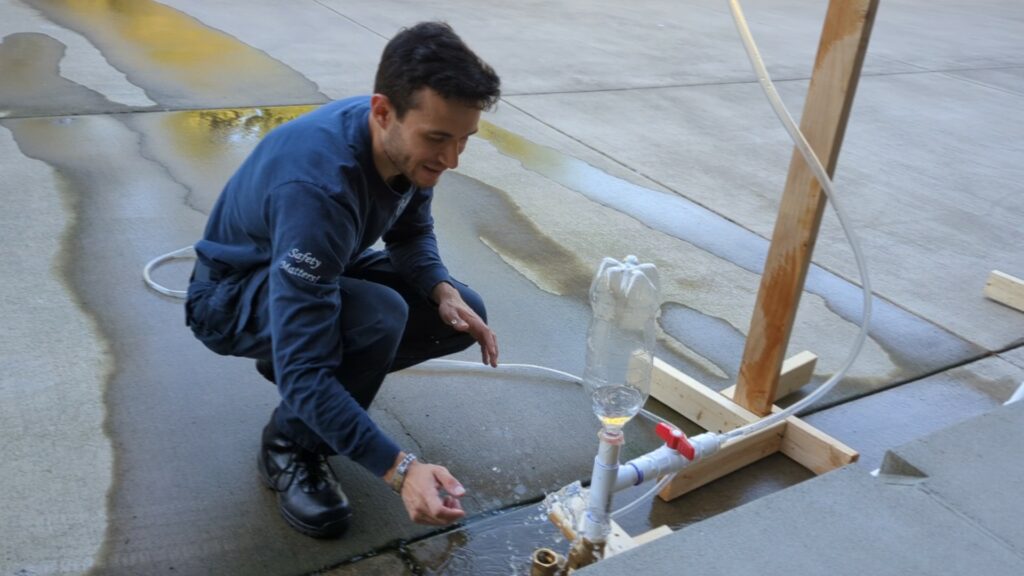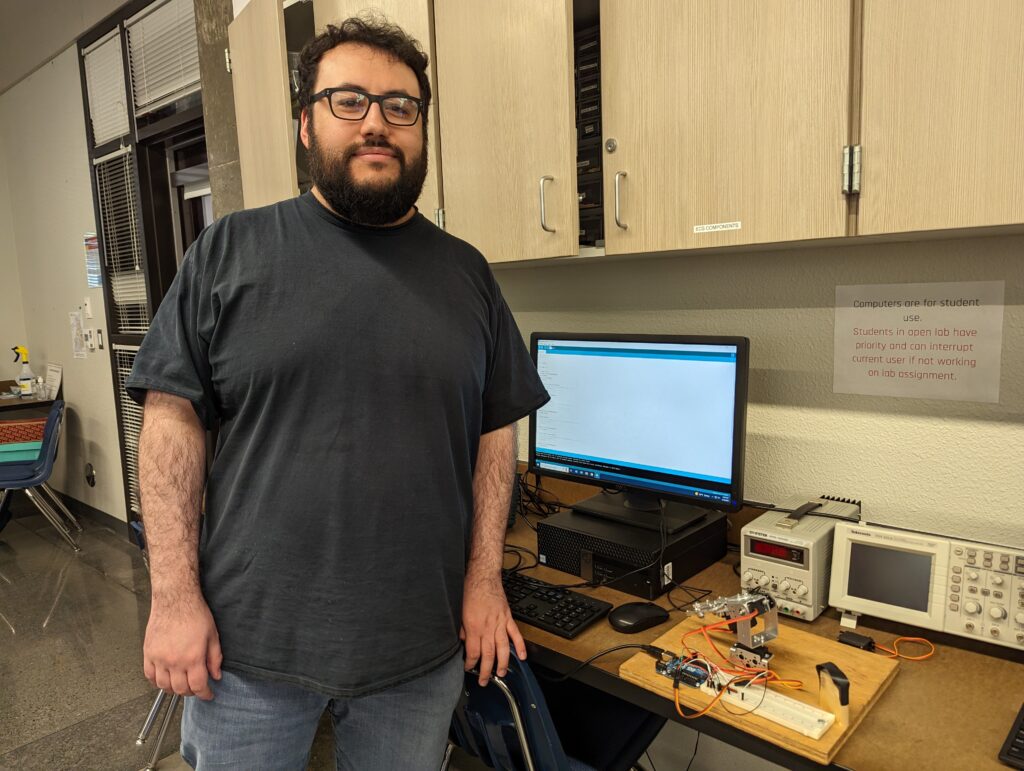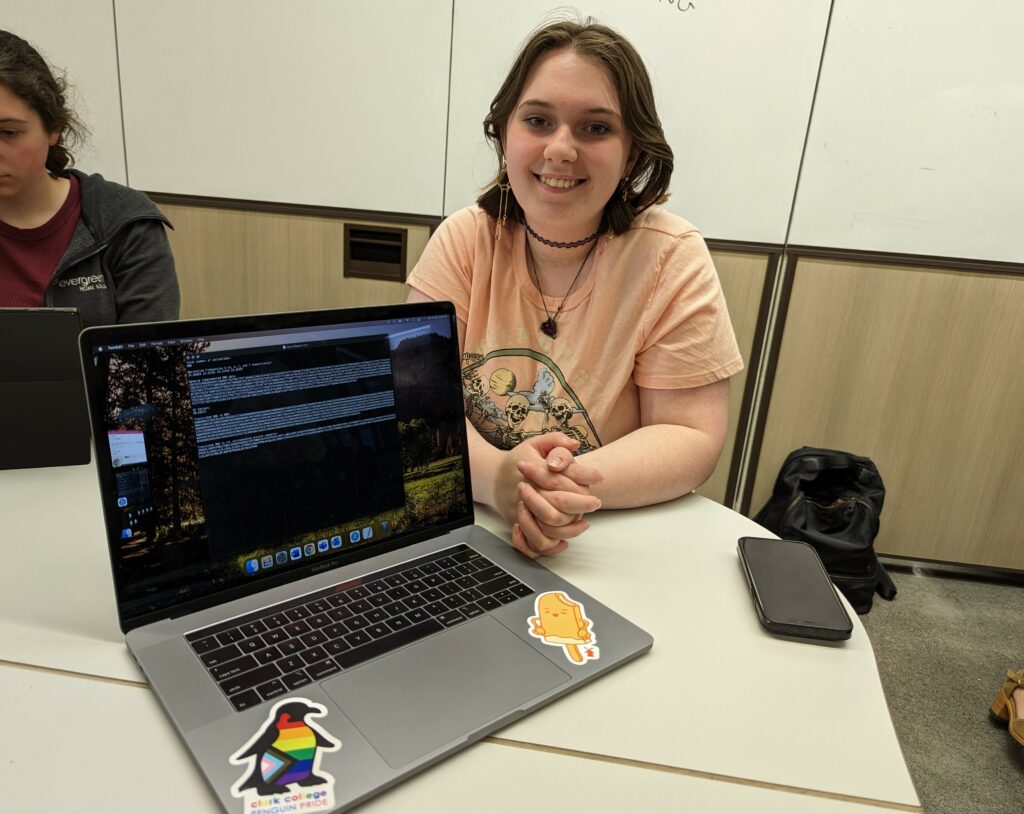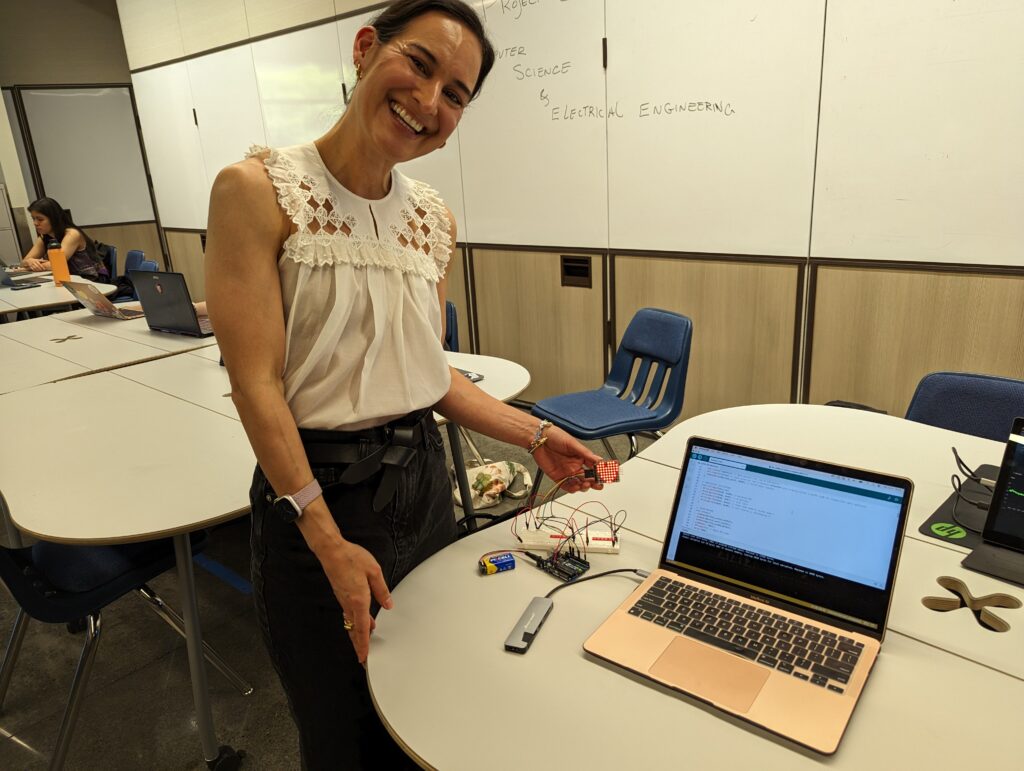Students present at Project Expo

Engineering and Computer Science students preparing to graduate presented their projects in an expo in the STEM Collaboratorium on June 6.
Engineering Professor Izad Khormaee explained that at the beginning of the academic year, students were assigned a task: to build and design a project that solves a real-world problem. Students proposed their project and designed it in Fall term, built it in Winter term, and improved on it in Spring term.

Brandon Eastman (above) designed and built an electric-powered robot for use in production line automation. His project combines mechanical engineering, electrical engineering, and computer science.
“It’s very simple,” Brandon said. “It is three motors equaling three degrees of freedom. Each motor is a wheel.”
Brandon is earning his associate degree in electrical engineering and transferring to WSU Vancouver to pursue a bachelor’s degree in electrical engineering.

Mellanie Martin (above) displayed the bioinformatics program she created that applies computer science principles to biological data.
“This program takes a DNA strand and transcribes it to RNA,” she said. “Bioinformatics is a growing field. We have so much biological data, but we don’t know what to do with it.”
Mellanie is transferring to WSU Vancouver to earn a bachelor’s degree in computer science.

Linnea Castro (above) a mother of three children, enrolled at Clark in her late 30s to pursue a career in computer science. She is transferring to WSU Vancouver to pursue her bachelor’s degree. She created a homework timer to encourage kids to focus for 25 minutes.
“It’s fun to do a project that’s manifested around something you want to learn,” Linnea said.
Outside on the terrace, Carlos Aragón (top of page) demonstrated his renewable energy project, Ram Power Energy, a wave-powered generator that transforms hydraulic energy into electrical energy. He hopes to use this technology to harvest the energy of the ocean waves to produce electricity and to extract hydrogen.
Carlos is earning his associates in electrical engineering and is transferring to WSU Vancouver, where he plans to earn his bachelor’s degree while continuing to improve his project. Eventually, he believes this process could not only be used to generate energy but also to clean the oceans.
“I’m excited to see how to use it,” he said. “I hope to inspire more students at Clark to research new sustainable and clean energy sources.”
Photos: Clark College/Susan Parrish












